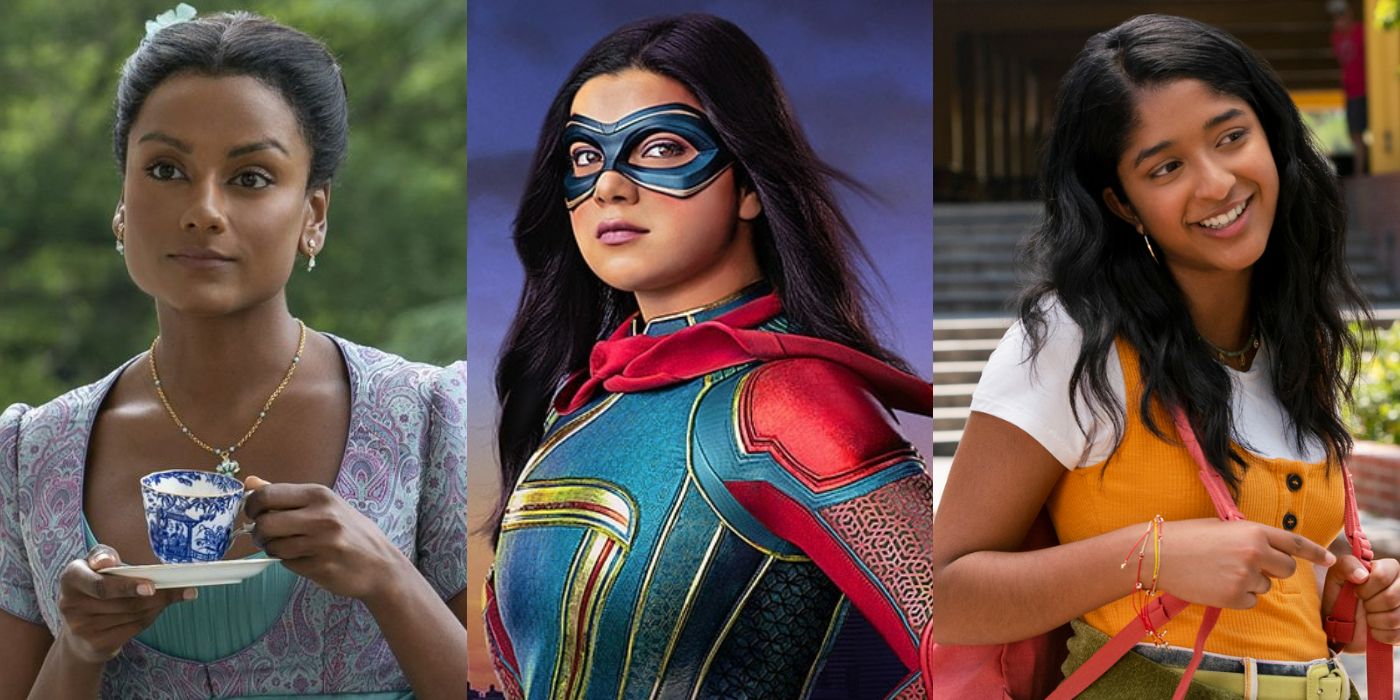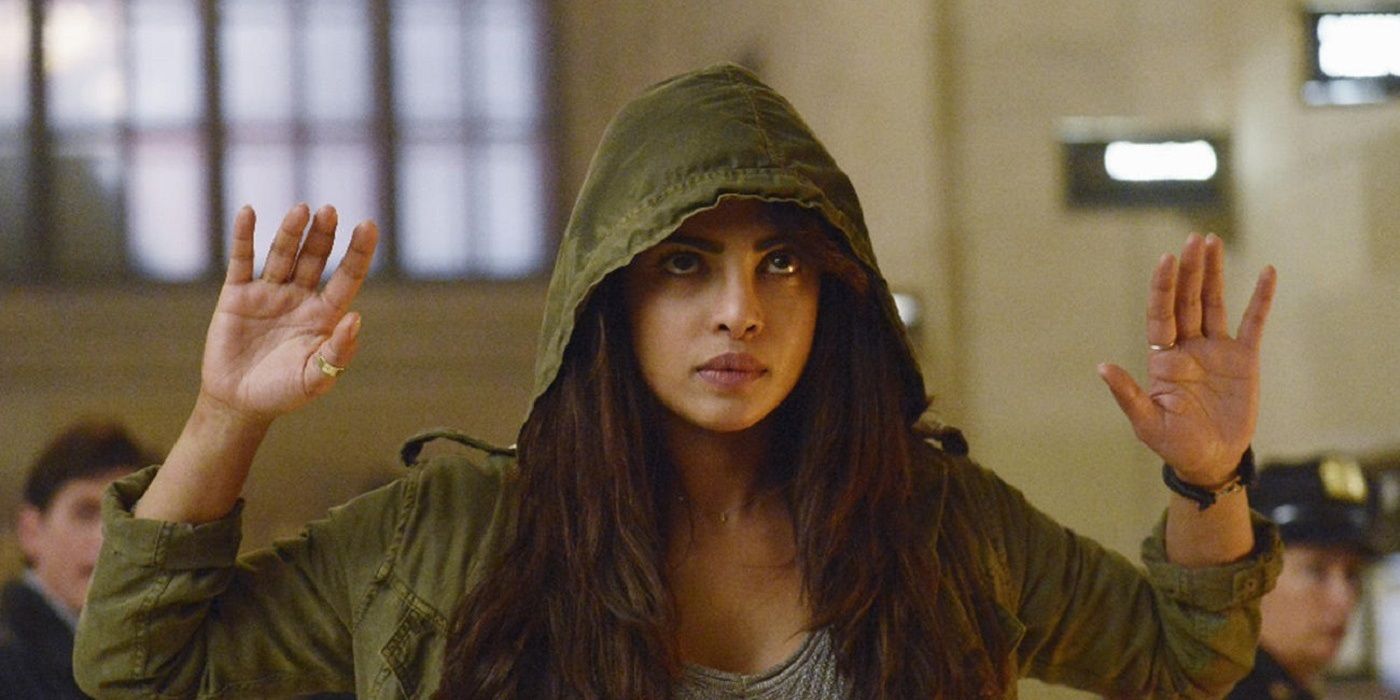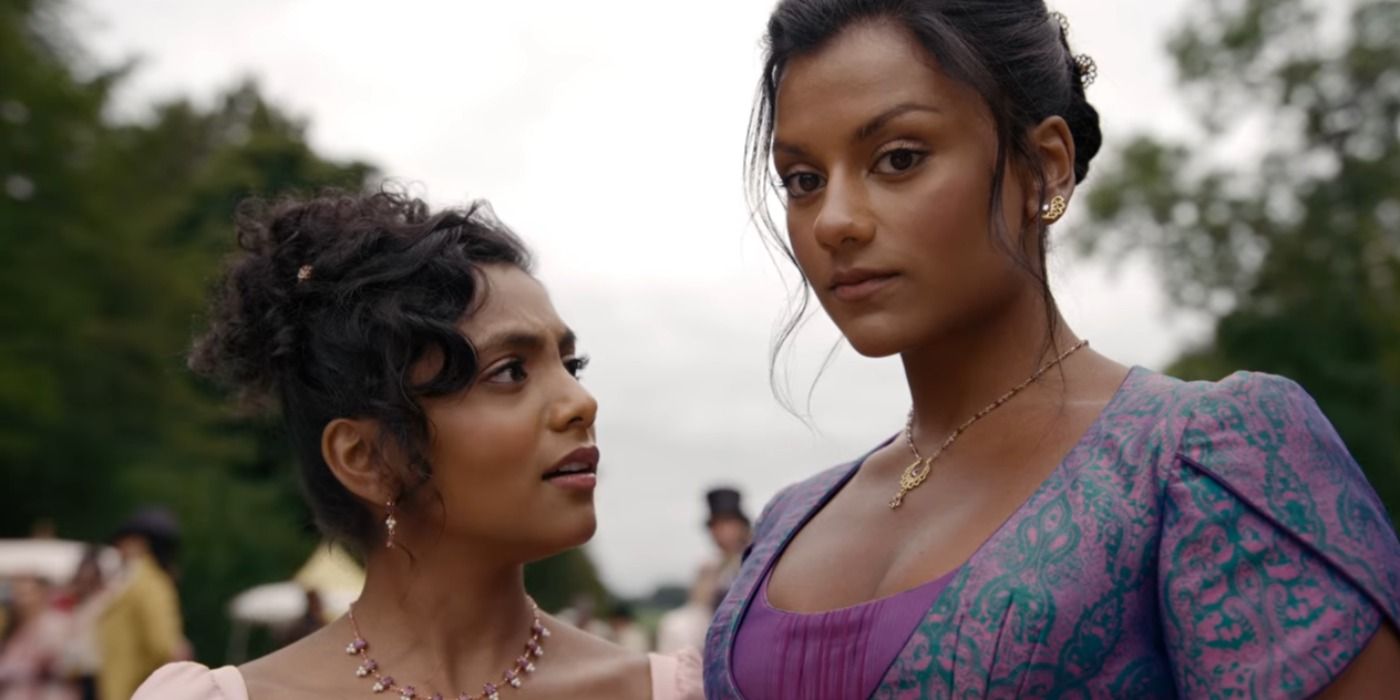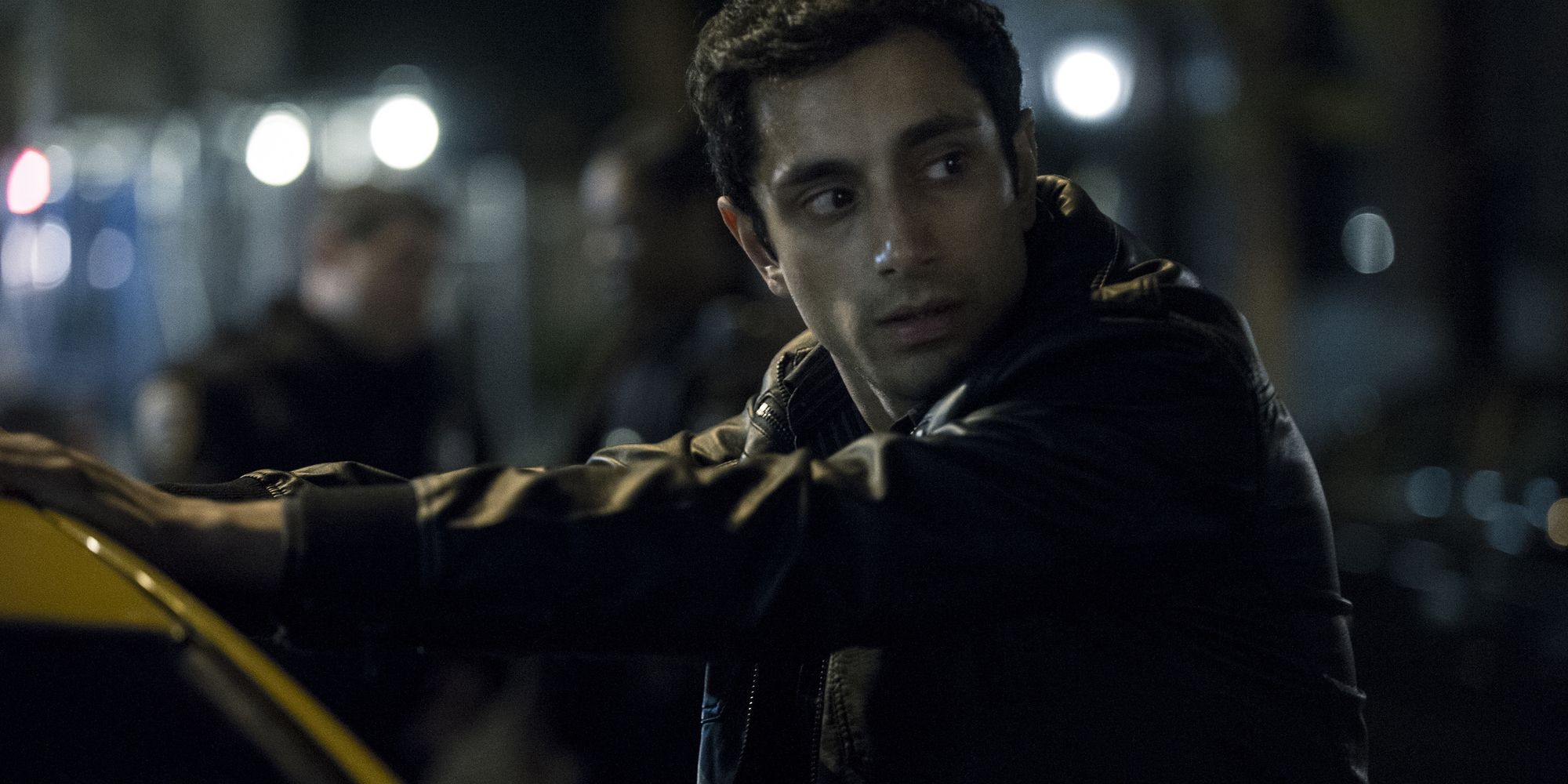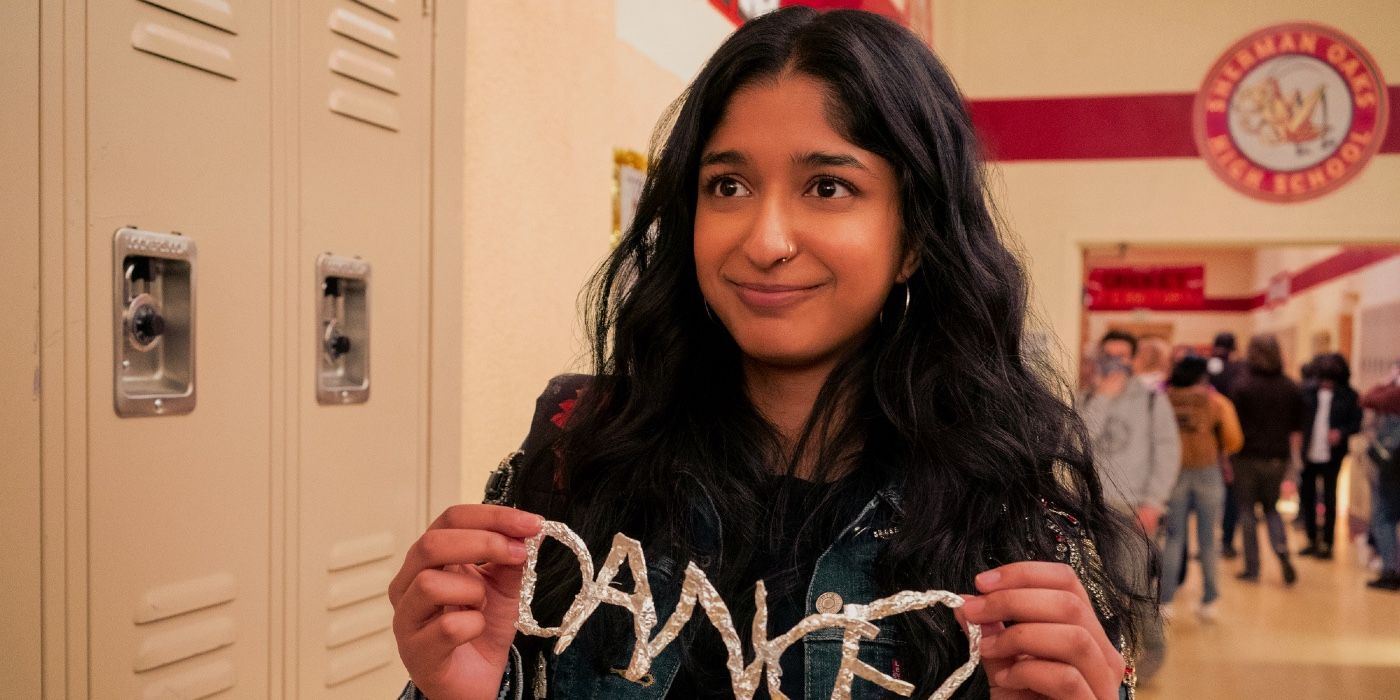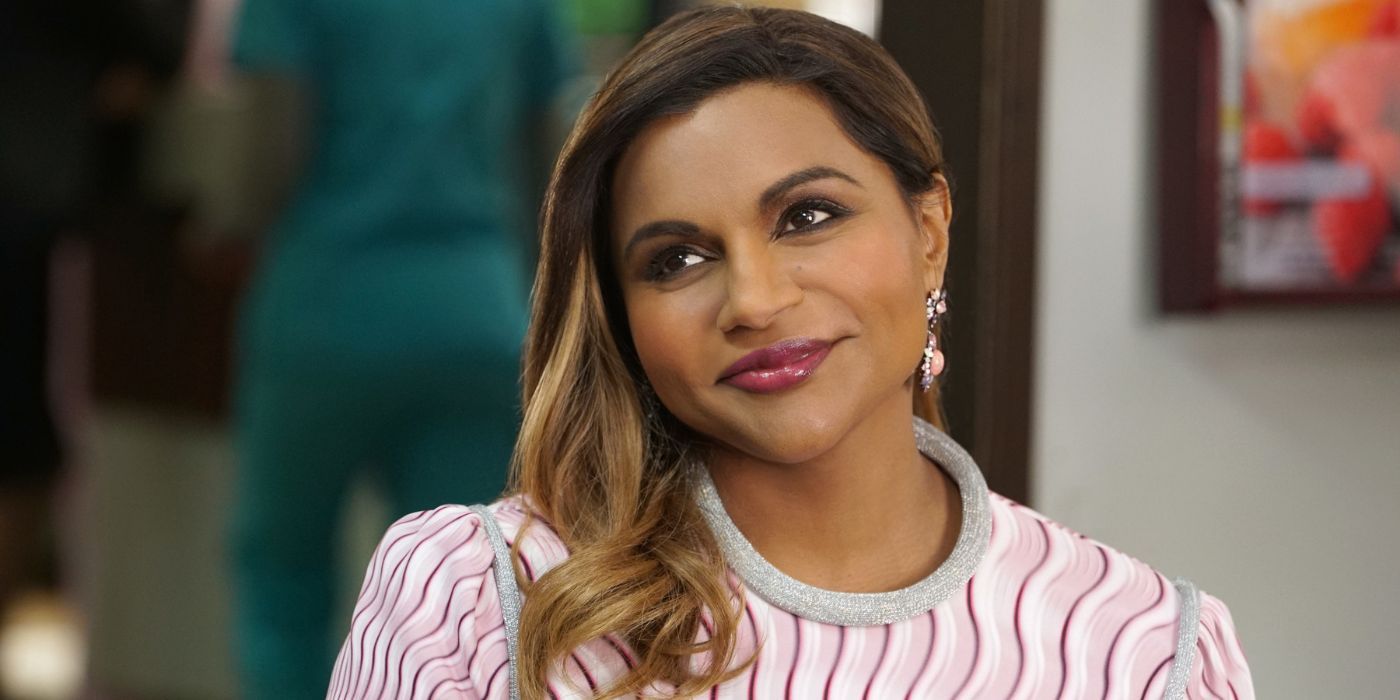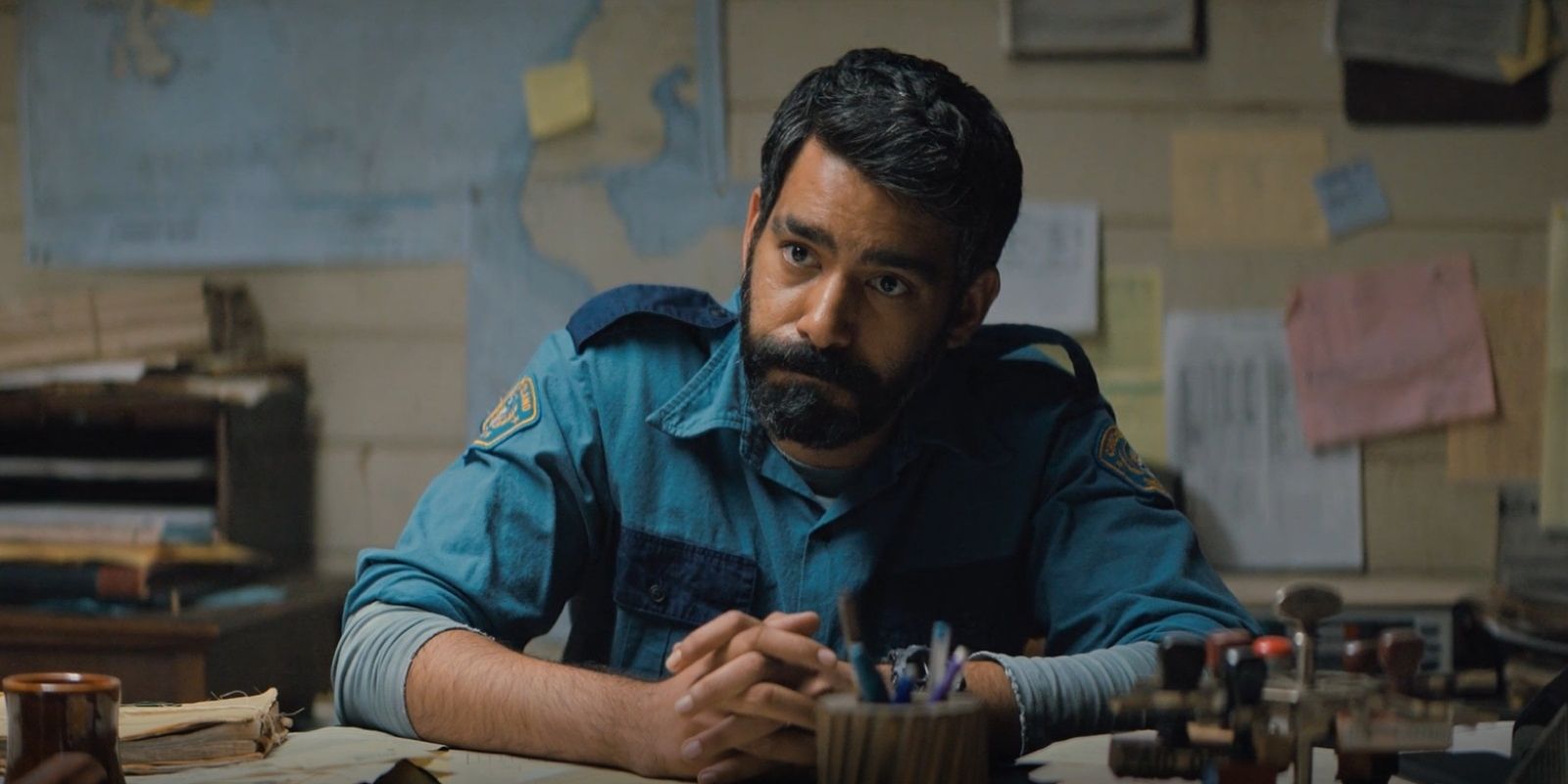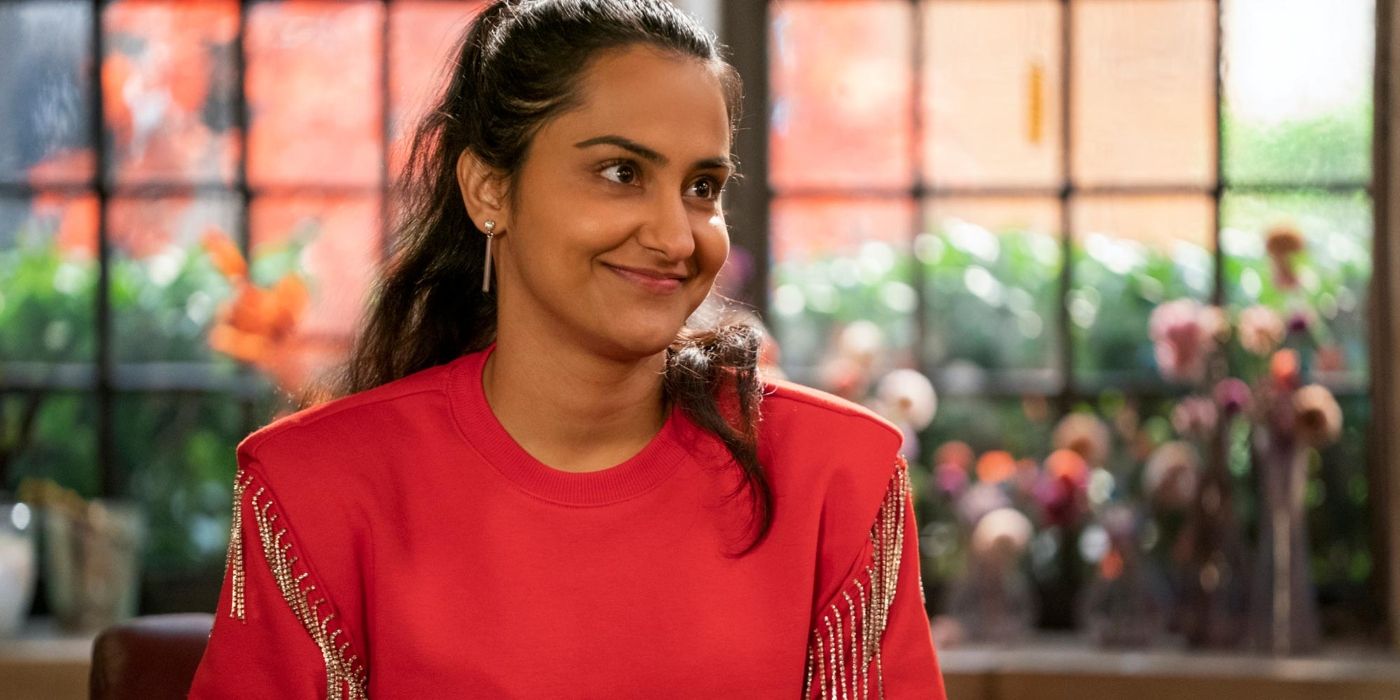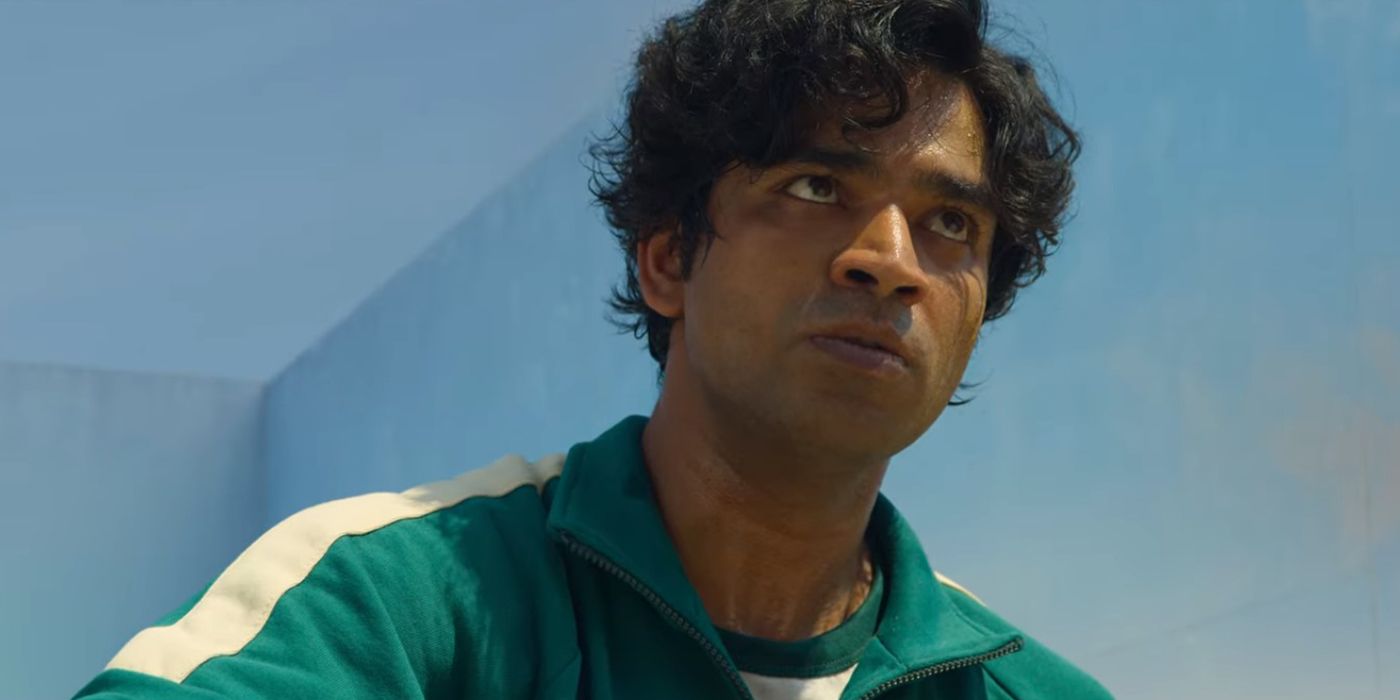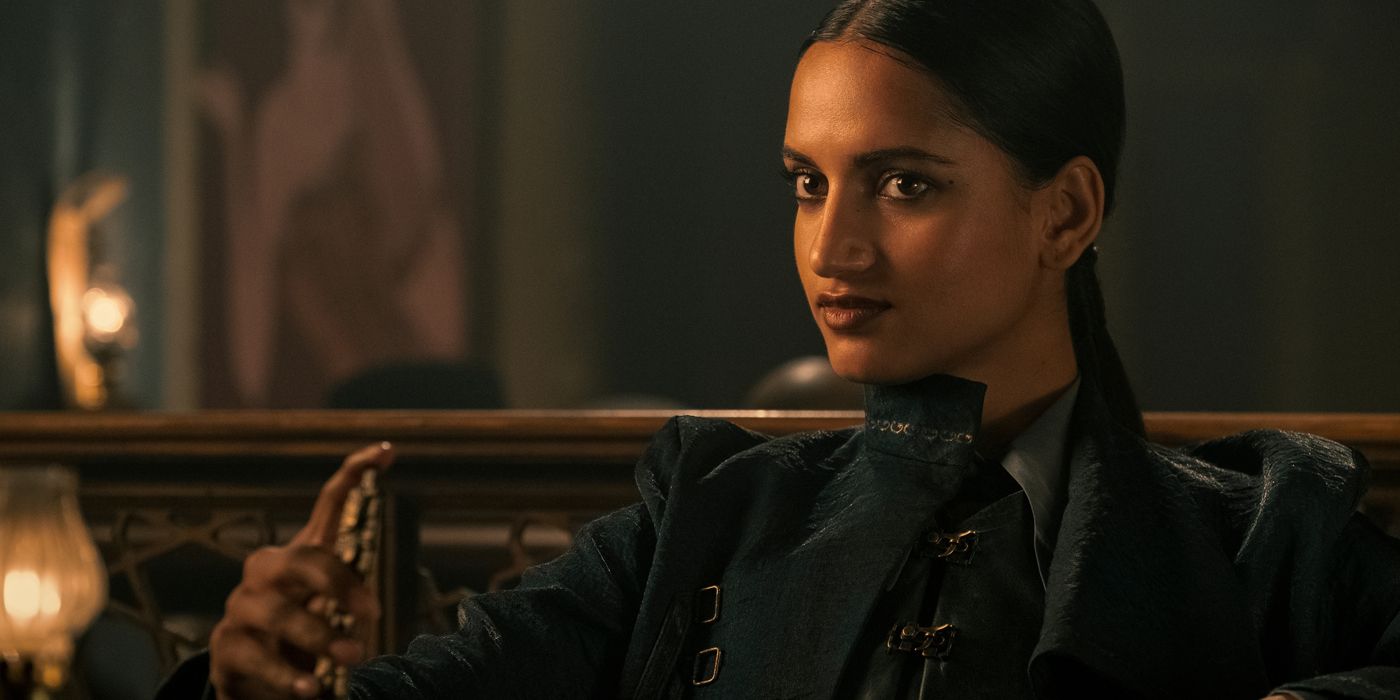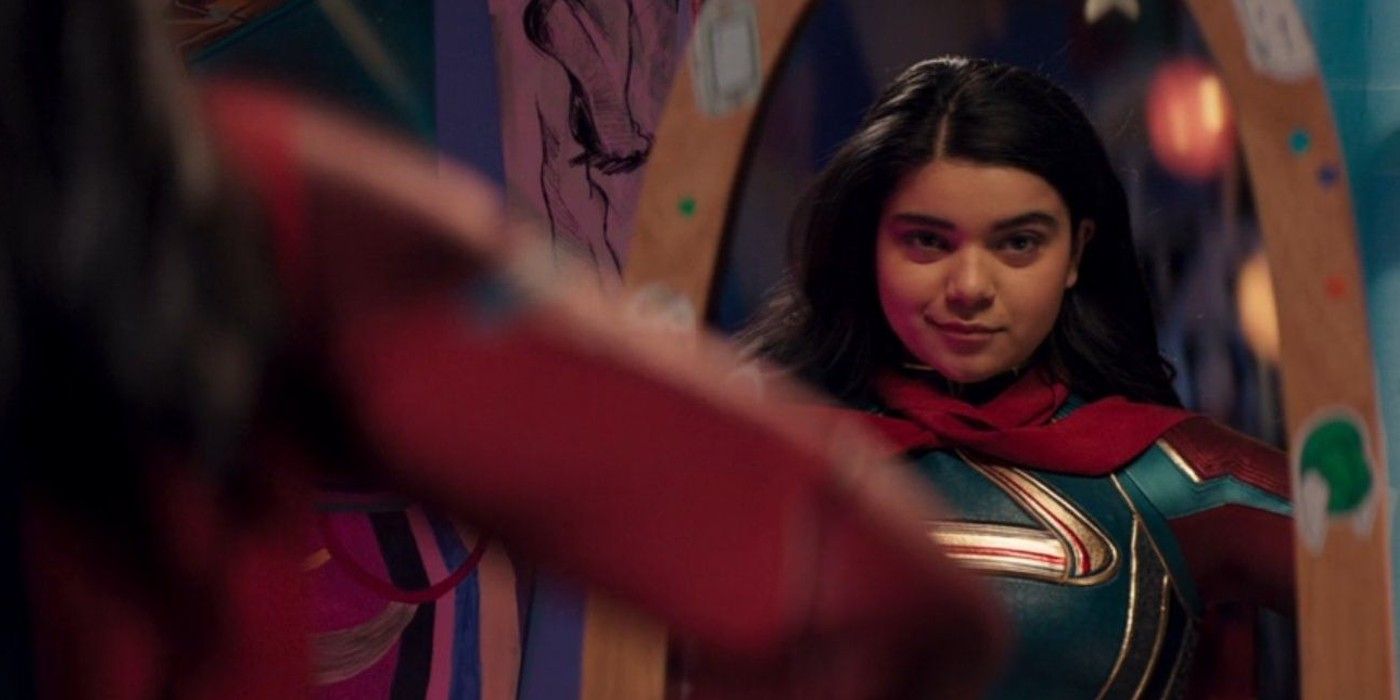With Kamala Khan making her final transition in the Ms. Marvel finale, Kamala's introduction to the MCU has been a major feat for South Asian representation, particularly expanding upon the perception of what a superhero can be on the big screen. Of course, it comes at a time when actors of South Asian background have been reclaiming their representation, moving past the stereotypical portrayals of thick accents and sometimes goofy side characters.
South Asian actors are now depicted in leading roles in the last few years, especially with Riz Ahmed's performance in Sound of Metal earning him an Oscar nomination for Best Leading Actor - the first of many South Asian actors to achieve. And while the South Asian representation in Hollywood still has a long way to go, there has been a growing trend of TV characters who have helped overcome the stereotypes of the group's depiction on screen.
Alex Parrish (Quantico)
It is rare to find any South Asian character become an action star in Hollywood, yet Alex Parrish led the way to challenge this stance in the action-packed thriller Quantico. Portrayed by Priyanka Chopra, Alex became one of the first Indian Americans on TV, showing that a character like her can be an intelligent, savvy, and fierce FBI agent.
Alex's introduction in the mainstream helped to show South Asian in different limelight, particularly empowering women who can kickbutt on the big screen. Though it does have some issues with Alex's whitewashed name and the lack of references to her Indian heritage, it nevertheless delivered a more substantial role that helped to diversify the characteristics of South Asian on TV. Via Complex, Chopra was also upfront about this stating, "I was very sure I did not want to be the stereotype of what Indian people are seen...You can be whoever you want. And I want young people to see that."
Kate & Edwina Sharma (Bridgerton)
Netflix's Brigderton continued this trend of "colorblind" casting by changing the leading lady in season 2, from Kate Sheffield to Kate Sharma, bringing along the character's Indian background to the mix of the ton society and becoming the show's romantic lead. The season even takes it up a notch by not only casting any South Asian but particularly dark-skinned actresses to portray the two sisters, played by Simone Ashley and Charithra Chandran. This becomes huge in challenging the problems regarding colorism, not only in Hollywood but a major issue that rests in India's movie industry, Bollywood.
Via Glamour, Ashley, who comes from a Tamilian family, addressed this issue, saying, "Colourism is an ongoing issue...I felt very typecast sometimes." She further elaborates, "to be seen as an actress who has talent and has a brain, and it just doesn’t matter what I look like." Bridgerton season 2 sent a huge message about women's beauty coming in all shapes, sizes, and skin colors. The show also depicts the dark-skinned Kate Sharma as charming, intelligent, raw, and desirable. The show's thematic romance demonstrated that dark-skinned South Asian women are also deserving of finding love in any medium, such as in the case of Kate Sharma stealing Anthony Bridgerton's heart.
Naz Khan (The Night Of)
Today, Riz Ahmed has become a leading South Asian actor in Hollywood, becoming a critic of Muslim portrayal in the media with "The Riz Test." But his breakthrough role as Naz Khan in The Night Of sparked the narrative about South Asians and Muslims in Western society. This mystery murder follows a Muslim American cab driver charged with murder.
Ahmed's raw portrayal of Naz produces the true realities that many in the South Asian community face with the generalized fallacies and prejudice from the media. Naz is nuanced and complex, dealing with survival, isolation, and a new identity, and his perspective demonstrates a far more realistic South Asian portrayal of their struggles that is infrequently shown on TV. Naz illustrates the darkness that many South Asian experience, which is a far more authentic viewpoint. With Ahmed delivering a breathtaking performance, he also won an Emmy Award for Outstanding Lead Actor in a Limited or Anthology Series or Movie, becoming the first South Asian to do so and a huge win for enhancing South Asian representation on television.
Devi Vishwakumar (Never Have I Ever)
Mindy Kaling has become one of the leading filmmakers in Hollywood, increasing representation for South Asians, and she does just that with this teen comedy, Never Have I Ever. Many South Asians could relate to Devi Vishwakumar, an Indian American teenager trying to tackle her high school life.
Though Devi may have traits of being a stereotypical nerdy student, Devi became the voice for many first-generation Indian American teenagers, struggling with her two cultural identities and finding the confidence to feel comfortable with herself. The series showed a realistic portrait of Devi undergoing this journey of forgiveness, family, and friendship and shedding light on her dating and sex life - a topic that is typically taboo within any South Asian culture. Though Devi's characterization was not always the most picture-perfect, it did open up to more roles based on South Asians, a more genuine depiction of an Indian American teenager to curtail cliché, and became one of the best female protagonists on Netflix.
Mindy Lahiri (The Mindy Project)
After her stint as Kelly Kapoor in The Office, Mindy Kaling made it her mission to improve South Asian representation by creating and playing Mindy Lahiri in The Mindy Project, one of the best female-led sitcoms. The leading and titular character deviates from the stereotypes of South Asians, showing an Indian American gynecologist attempting to straddle through life, whether at her medical job or hanging out with friends.
Mindy is portrayed as bold, funny, and energetic, deviating from the cliché parts of South Asians on television. Most importantly, the series plays a big part in showing Mindy explore her identity as she goes about her dating life and romantic feelings that become central to her arc. Mindy displays South Asians in a position where they deserve the affection to find love while balancing other aspects of life, which further breaks the barrier of South Asians in a romantic medium.
Sheriff Hassan (Midnight Mass)
Rahul Kohli has earned a great reputation for picking up many South Asian characters in hit series, like The Haunting in Bly Manor and iZombie. But his most recent role as Sheriff Hassan in Midnight Mass took a different spin in portraying South Asians while experiencing the scary horrors in an isolated town.
The fascinating image of Sheriff Hassan is that the series discusses the issues that many South Asians experience, whether racism or, in Hassan's case, Islamophobia. But the most impressive part of the series is that it changes the script regarding the villains and heroes of the story, where Sheriff Hassan is considered one of the moral heroes. Changing this narrative sheds light on South Asians as likable, empathic, and heroic characters like Sheriff Hassan, again breaking this barrier about their depiction on television.
Bela (The Sex Lives of College Girls)
HBO's new series, The Sex Lives of College Girls, is another Kaling creation. It is one of her most ambitious and diverse series that brings together four college friends tackling issues of sexuality and friendship.
One of the characters sharing the spotlight is Indian American college student, Bela, from New Jersey. Compared to Devi and Mindy, Bela is one of the most authentic South Asian characters that Kaling has written due to her sex-positive and free-spirited lifestyle. Also, talks about sex are taboo in many South Asian cultures, yet Bela challenges this notion by exploring her sexuality and bringing more open-ended discussion about this topic. While sharing the screen with three other characters, there is no denying that Bela is the best character due to her positivity, confidence, and pursuit of becoming a comedy writer. That is why she is the funniest and most likable character in The Sex Lives of College Girls and deservingly so.
Ali Abdul (Squid Game)
Netflix's Squid Game took the world by storm last year, and with so many contestants to root for, many grew to love Ali Abdul. His backstory frames many South Asians' experiences of immigration and low-paid work, showcasing the hardship many people endured when relocating to a new nation.
His story felt more personal and realistic, which plays a part in his decision to join the games in the first place and attempt to win the prize money to help his family. Given his caring, selfless, but naïve personality, many people instantly loved Abdul, especially as he persevered in each round. While Abdul is a realistic example of any South Asian's hopes for a new dream, he never lost touch with reality and proved himself to be one of the strongest competitors, whom many within the community will appreciate. Even today, people are still heartbroken about his demise because he was the most likable character on Squid Game.
Inej Ghafa (Shadow and Bone)
Netflix continued to improve South Asian representation on TV, and Shadow and Bone extended this by introducing a Crow member, Inej Ghafa. The character is Suli, in which the group is typically described with tanner or brown skin, emulating more so South Asian people.
When it is rare to find most South Asians in fantasy TV shows, Inej overcomes this barricade, particularly as one of the main characters. It happens as fantasy shows like Game of Thrones have received criticism for the lack of diverse characters, and this becomes further difficult for South Asians. Inej remains the exception, depicting herself as a sharp, knife-skilled, and fierce Crow member, but what makes her story dark and heartbreaking is that she was kidnapped as a child and became a slave. Yet, her story as a survivor further elevates Inej's emotional depth and powerful portrayal. Inej will hopefully open more doors to South Asian-related characters on the biggest fantasy shows, proving them capable of any combat and heroism coupled with a complex and compelling story arc.
Kamala Khan (Ms. Marvel)
With Phase Four diversifying its character selection, Kamala Khan, aka Ms. Marvel, was the latest to receive this treatment, becoming the first Muslim character to appear in the MCU. Throughout Kamala's journey, MCU fans got an outlook on her Pakistani roots and Islamic religion, such as the history of the 1947 partition, the Eid celebrations, and Muslim weddings. Even her Pakistani ancestry becomes integral to her backstory, allowing Kamala to undergo a journey embracing her family's history.
Through and through, the authentic depiction through Kamala's eye did not only resonate with many South Asian Americans but stole the hearts of many others, educating how a Pakistani American teenager is like any other teenager, dealing with school, and college applications, and cultural fandom. Via TVLine, Iman Vellani, who portrayed Kamala Khan/Ms. Marvel, shared that she became more appreciative of her South Asian culture and Muslim heritage after working on the Disney+ series. But, even more, Kamala Khan once said that "it's not the brown girls from Jersey City who save the world," yet the MCU show proved this wrong by showing that a young Desi girl can be a superhero after all.

